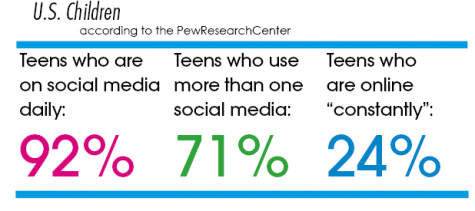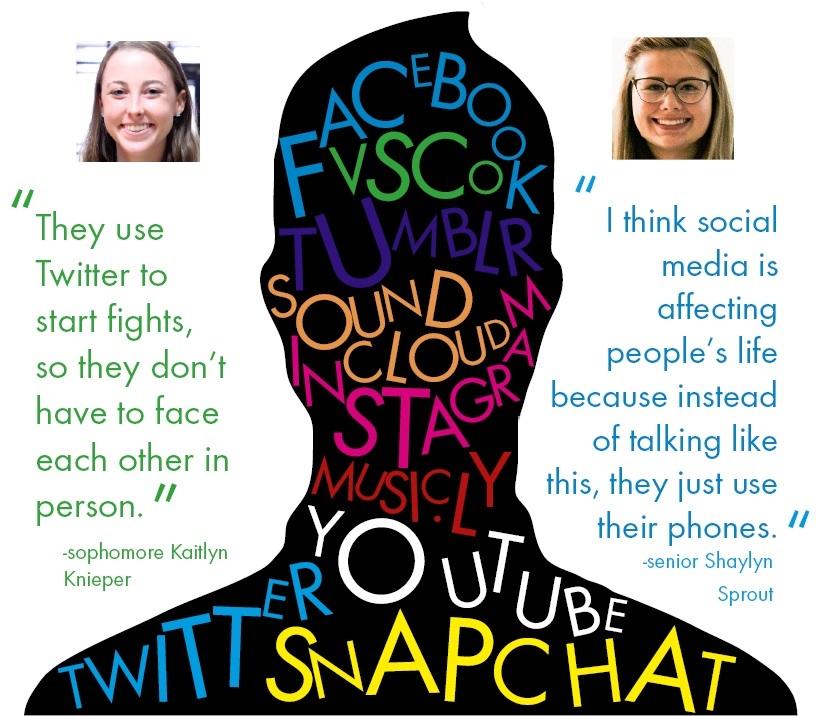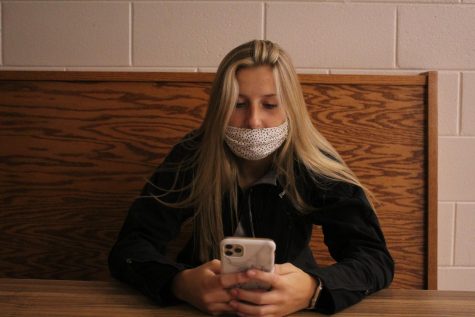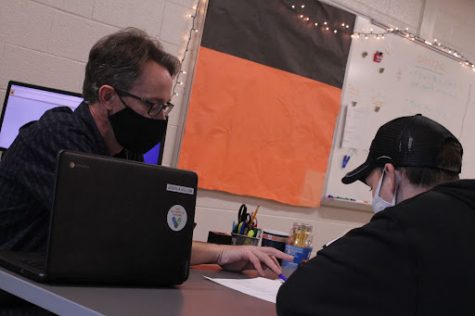Media Addiction
Smart phone access to social platforms, negative social outcomes
Obsession with technology throughout the recent years has grown to the point it could be considered an addiction. Teenagers ages 13-18 spend an average of nine hours a day on entertainment such as social media, television and computer use, according to a study from Common Sense Media, a nonprofit education organization dedicated to helping children flourish in a technology and media world.
More time spent on social media means less time to do homework and other school activities, resulting in grades of the student slipping, as well as the amount of sleep they get.
In a study conducted by psychologist Jennifer Peszka, the less sleep a teenager gets, the lower the teenager’s grade point average will be.
Some academics say that phones help teenagers study and learn. However, English teacher Alaina Feliks argues that students can now easily cheat on tests by sneaking their phones under the desk and looking up the answers when the teacher is not looking.
“One year, a student took a photo of his old test with the corrected answers before he retook the test and tried to use the photo when he was retaking,” Feliks said.
In addition to being used for cheating during tests, cell phones are also used to start gossip about people and spread rumors.
One medium commonly known for drama is Twitter. This social platform is an outlet for people to vent, gossip and start twitter fights, which are tweets that talk about a person in a certain way that makes teenagers upset,
resulting in an argument.

“People usually disagree about things and they end up tweeting back and forth arguing about the topic,” sophomore Katelyn Knieper said.
“They use Twitter to start fights, so they don’t have to face each other in person.”
Another media students express their feelings through is Instagram. However, instead of starting drama, they follow famous, popular or pretty people to become inspired by the way they look or act, which influences their own definition of beauty. According to a study conducted by the University of Kansas, celebrities are a type of royalty that influences teenagers to want to be just like them which makes it addicting to follow them.
“I think people do that because they are so wrapped up in the famous person’s life and they lose focus of their own life so they don’t have to focus on the bad parts of the actual life,” senior Destiny Allard said.

Uncaged is a great class that engages me to do better every day. My favorite part of being a staff reporter is learning new things all the time. After...








